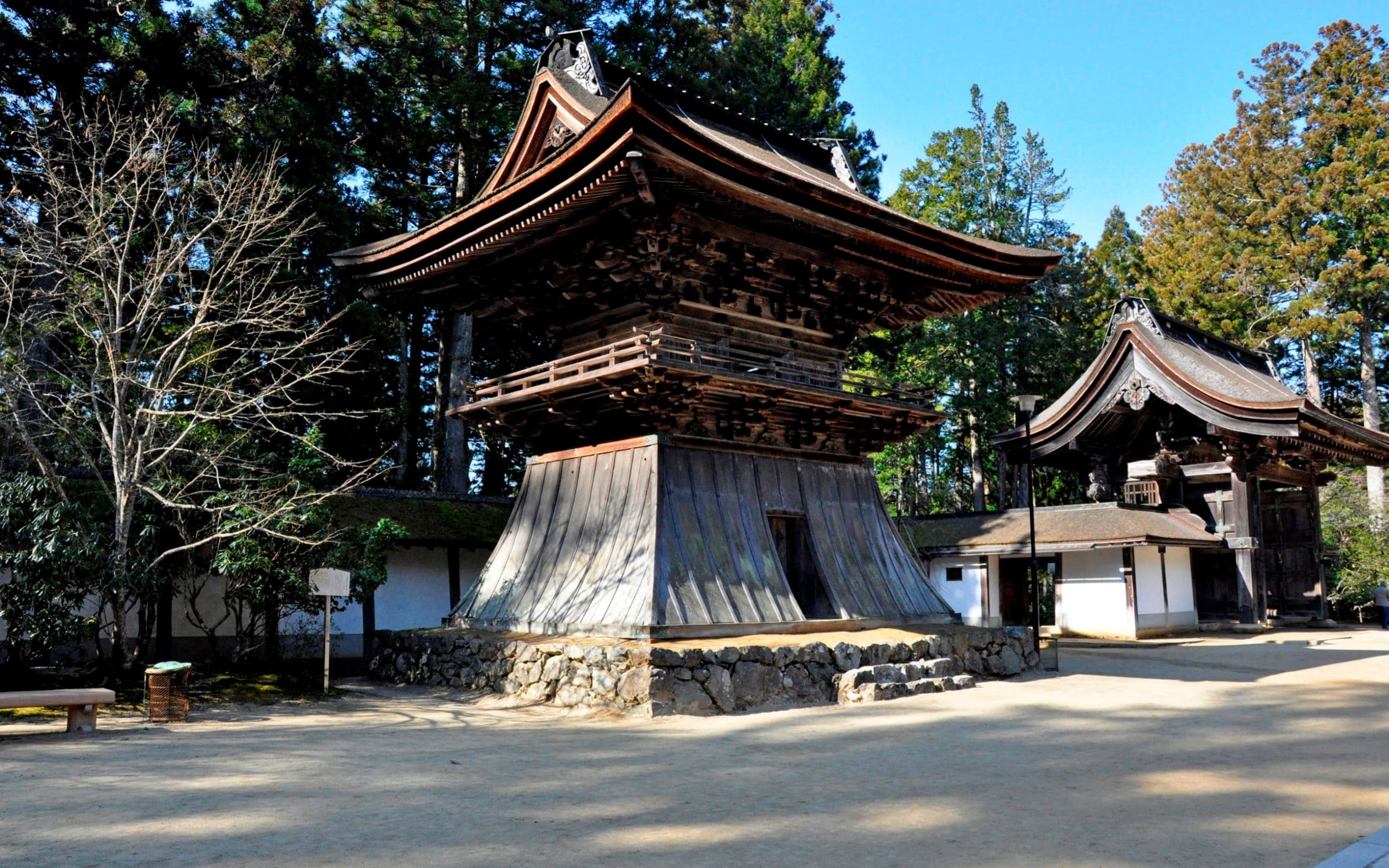Japanese monk sues temple saying work gave him depression
Buddhist looking for £57,400 in damages after he said he had to work sometimes for two months without a break

A free daily email with the biggest news stories of the day – and the best features from TheWeek.com
You are now subscribed
Your newsletter sign-up was successful
A Japanese monk is suing his temple, claiming he was forced to work incredibly long hours catering to tourists and that the heavy workload gave him depression.
The monk, in his 40s, is seeking 8.6m yen (£57,400) from his temple on Mount Koya, a world heritage site also known as Koyasan, “which is regarded as one of the most sacred Buddhist sites in Japan”, says The Guardian.
The plaintiff began working at the temple in 2008 and became depressed around December 2015, according to his lawyer Noritake Shirakura.
The Week
Escape your echo chamber. Get the facts behind the news, plus analysis from multiple perspectives.

Sign up for The Week's Free Newsletters
From our morning news briefing to a weekly Good News Newsletter, get the best of The Week delivered directly to your inbox.
From our morning news briefing to a weekly Good News Newsletter, get the best of The Week delivered directly to your inbox.
“If you work as a monk, too often you work without work-hour management,” Shirakura told AFP. “You provide labour, but you are told it's part of religious training. And if it's training, you must endure even it causes you significant hardship.”
“Through this case, we will argue that such a notion is outdated,” he said.
A local labour standards supervision office “has already recognised his overwork, confirming he once worked for at least a month without a day off”, says The Japan Times.
According to the complaint, his schedule included starting preparing for guests and tourists at 5am each day, before taking part in morning prayers at the temple’s shukubo, a lodging built for monks and worshippers. The paper adds that the complainant “sometimes worked late into the night attending to guests and fulfilling other duties at the temple”.
A free daily email with the biggest news stories of the day – and the best features from TheWeek.com
The case argues “that the monk was forced to perform paid labour far beyond his spiritual duties, and at times worked for more than two months straight”, says the Daily Telegraph.
Overwork is a major problem in Japan, and death by overwork is a recognised phenomenon that even has its own word - “karoshi”.
Last year, the Japanese government released a report that found 191 cases of “karoshi” in the 12 months leading up to March 2017, and that more than 7% of Japanese employees logged over 20 hours of overtime a week.
-
 5 cinematic cartoons about Bezos betting big on 'Melania'
5 cinematic cartoons about Bezos betting big on 'Melania'Cartoons Artists take on a girlboss, a fetching newspaper, and more
-
 The fall of the generals: China’s military purge
The fall of the generals: China’s military purgeIn the Spotlight Xi Jinping’s extraordinary removal of senior general proves that no-one is safe from anti-corruption drive that has investigated millions
-
 Why the Gorton and Denton by-election is a ‘Frankenstein’s monster’
Why the Gorton and Denton by-election is a ‘Frankenstein’s monster’Talking Point Reform and the Greens have the Labour seat in their sights, but the constituency’s complex demographics make messaging tricky
-
 Epstein files topple law CEO, roil UK government
Epstein files topple law CEO, roil UK governmentSpeed Read Peter Mandelson, Britain’s former ambassador to the US, is caught up in the scandal
-
 Iran and US prepare to meet after skirmishes
Iran and US prepare to meet after skirmishesSpeed Read The incident comes amid heightened tensions in the Middle East
-
 Israel retrieves final hostage’s body from Gaza
Israel retrieves final hostage’s body from GazaSpeed Read The 24-year-old police officer was killed during the initial Hamas attack
-
 China’s Xi targets top general in growing purge
China’s Xi targets top general in growing purgeSpeed Read Zhang Youxia is being investigated over ‘grave violations’ of the law
-
 Panama and Canada are negotiating over a crucial copper mine
Panama and Canada are negotiating over a crucial copper mineIn the Spotlight Panama is set to make a final decision on the mine this summer
-
 Why Greenland’s natural resources are nearly impossible to mine
Why Greenland’s natural resources are nearly impossible to mineThe Explainer The country’s natural landscape makes the task extremely difficult
-
 Iran cuts internet as protests escalate
Iran cuts internet as protests escalateSpeed Reada Government buildings across the country have been set on fire
-
 US nabs ‘shadow’ tanker claimed by Russia
US nabs ‘shadow’ tanker claimed by RussiaSpeed Read The ship was one of two vessels seized by the US military